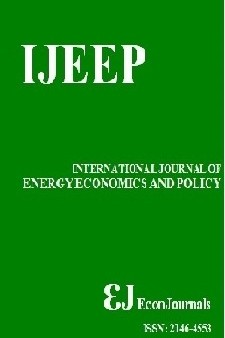An Econometric Investigation of Forecasting Premium Fuel
An Econometric Investigation of Forecasting Premium Fuel
Premium fuel ARIMA, Forecasting,
- Başlangıç: 2011
- Yayıncı: İlhan ÖZTÜRK
An Econometric Investigation of Forecasting Premium Fuel
Samuel Asuamah Yeboah, Joseph Ohene-Manu
İrwan Shah Zainal ABİDİN, Muhammad HASEEB, Muhammad AZAM, Rabiul ISLAM
Daniel Alejandro Sanchez-Loor, Manuel A. Zambrano-Monserrate
Nuclear Energy Consumption and Growth Nexus in G-6: Evidence from Bootstrap Rolling Window
France Krizanic, Zan Jan Oplotnik, Vasja Kolsek, Alenka Kavkler
Volatility Transmission in Oil Futures Markets and Carbon Emissions Futures
Greg Ekpung EDAME, Okoiarikpo Benjamin OKOİ
Determinants of Nuclear Energy Consumption in South Asia: Economic and Energy Security Issues
